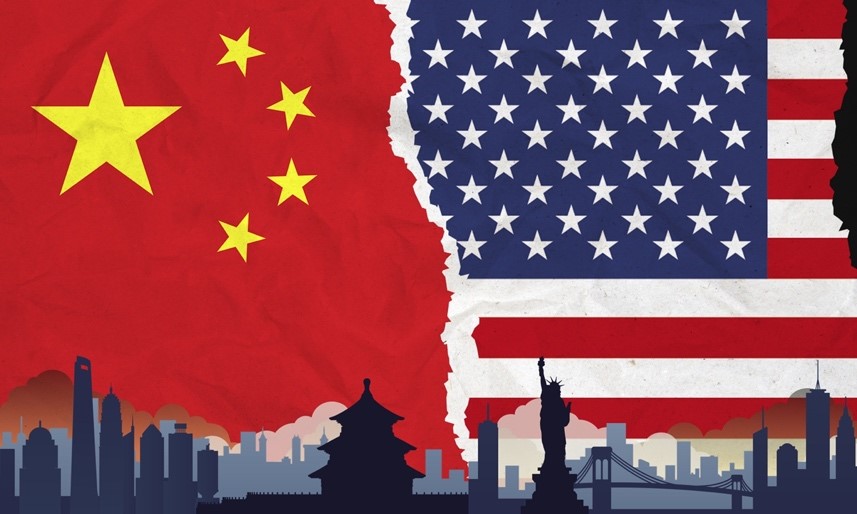Description

Disclaimer: Copyright infringement not intended.
Context
- The Trump-era focus of the U.S. to decouple from China is being phased out by a new concept.
Details
- The U.S. has expressed that it is shifting its policy on China from decoupling to de-risking.
- The EU has already declared that its approach to China will be based on de-risking.
- The recently concluded G-7 summit at Hiroshima, through its Leader’s Communique, has also expressed the grouping’s consensus on de-risking.
Background
- After the establishment of diplomatic ties between the U.S. and China in 1979, both the countries embarked on a path of increasing economic interdependence.
- China gained immensely from this relationship, as it helped the country drastically widen and deepen its diplomatic and economic engagement with the rest of the world.
- As China’s economic and military power grew, its ambition to challenge the primacy of the U.S. in the international system became increasingly apparent.
- China’s rise not only came at the expense of America’s global clout, but also the latter’s domestic industry, which got “hollowed out” in its four-decade old economic embrace with China.
Trump administration’s policy
- The Trump administration made it a point to attack the gargantuan bilateral trade imbalance in favour of China.
- It also wished to keep the U.S’s high technology sector out of China’s reach.
- In a series of moves, Trump raised tariffs on Chinese imports which invited retaliatory tariffs from China.
- The S.-China ‘trade war’ started, and bilateral relations were set on course for a “decoupling” from the American standpoint.
- This approach was marked by a rare sense of bipartisanship in an otherwise polarised domestic political climate in the U.S.
- Therefore, the Biden administration which took over from the Trump administration continued with the latter’s China policy.
.jpeg)
What is ‘de-risking’?
- De-risking fundamentally means having resilient, effective supply chains and ensuring not being be subjected to the coercion of any other country.
- While decoupling stands for an eventual reversal of the four-decade old project to enmesh the two economies, de-risking aims to limit such an effect only in areas where it undercuts the national security and industrial competence of the U.S.
Reasons for de-risking
- The policy change has been announced in the wake of several events of high geopolitical significance.
- The world has just emerged out of the tentacles of the pandemic after three disruptive years and the global economy is hoping for a resulting rebound.
- The U.S.-China rivalry had peaked in the past few months — from the ratcheting of tensions across the Taiwan Strait to the acrimonious spy balloon episode between the two countries.
- China also witnessed Xi Jinping beginning his second decade of rule over China.
- In parallel, a year has passed since Russia began its special military operation in Ukraine.
- All of these developments have necessitated the U.S. to recalibrate its posture towards China.
- In such a situation, casting the U.S.-China relations as a new Cold War and a zero-sum game appears to be risky for the U.S.
- A watered down version in the form of de-risking could better achieve the objective of getting Europe on board the U.S’s efforts to counter China.
Geopolitical ramifications of de-risking
- The S. efforts to keep its allies closer in its geopolitical rivalry against China by adopting the path of de-risking has already won a significant victory in Japan at the G-7 summit.
- The leaders at the summit declared that they will coordinate their “approach to economic resilience and economic security that is based on diversifying and deepening partnerships and de-risking, not de-coupling”.
- China has expressed its scepticism to the West’s de-risking approach, portraying it as a façade to the decoupling agenda.
- Moreover, China has expressed its disapproval in painting China as the actor responsible for heightening geopolitical risks.
- However, its effectiveness could be questionable, as it has dialled down U.S’s rhetoric against China which could be read by the latter as a sign of its adversary’s weakness.
- Though countries like India will stand to benefit from de-risking by leveraging its benefits like attracting supply chains and confronting China’s aggressive moves, it could also come at a cost.
- With the Russia-Ukraine conflict and the consolidation of the European alliance being the major triggers behind this shift, de-risking could lead to U.S. focus on the Indo-Pacific being diluted, at least for the short term.
|
PRACTICE QUESTION
Q) The continuing emphasis in de-risking to diversify supply chains away from China demonstrates that the Trump-era spirit of decoupling is being carried forward, albeit with some changes. Comment. (250 words)
|

https://epaper.thehindu.com/ccidist-ws/th/th_delhi/issues/37892/OPS/G67B9UK59.1+GA3B9VHU4.1.html









